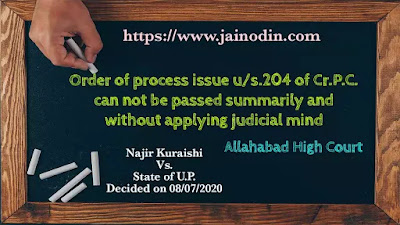If the authority vested in a public servant is misused for doing things which are not otherwise permitted under the law, such acts cannot claim the protection of Section 197 Cr.P.C.
In the light of the principles laid down in the judgment referred supra, this Court has to analyse the materials on record. I have already pointed out that the complainant's son was detained in illegal custody for a period of 2 days is not in dispute and also he was summoned to enquire is also not in dispute. It is also to be noted that I have already pointed out the medical evidence with regard to the fact that he was subjected to physical torture and document of Ex.P.28 is clear that he was subjected to man handling and as a result, he took treatment at Janatha Nursing Home. It is also important to note that on account of said humiliation, he took the extreme step of committing suicide as he was tortured, assaulted and detained in illegal custody for a period of 2 days in the police station. It is also apparent prima facie on record that departmental enquiry was conducted and at the fist instance the report was given against these petitioners vide report dated 25.06.2010 and the same would prima facie discloses that the police had excesses their powers. It is also not in dispute that ultimately the son of the complainant was not arraigned as an accused in the said case. It is also not in dispute that the very complainant in the said chain snatching case, has not identified the son of the complainant and there are no criminal antecedents against him. When such being the case, the protection envisaged under Section 197 of Cr.P.C. or Section 170 of KP Act cannot be extended to the petitioners herein.[Para No.27]
Learned Magistrate, in detail considered the statement of witnesses, who have been examined i.e., 7 in number and also while passing a detailed order, assigned the reasons. Learned Revisional Judge also examined the legal aspect and also the factual aspect of the case and passed a detailed reasoned order and comes to the conclusion that there is no merit in the revision. The Court also while issuing the process against the petitioners herein considered the sworn statement as well as allegations made in the complaint and has rightly come to the conclusion that it is a fit case to proceed against the petitioners herein[Para No.28]
This Court also would like to refer to the judgment of the Apex Court in the case of Choudhury Parveen Sultana v. State of West Bengal and Another reported in (2009) 2 SCC (Cri) 122 regarding Section 197 of Cr.P.C, wherein the object, nature and scope of Section 97 of Cr.P.C. has been reiterated. Wherein it is held that all acts done by a public servant in the purported discharge of his official duties cannot as a matter of course be brought under the protective umbrella of Section 197 of Cr.P.C. Further, there can be cases of misuse and/or abuse of powers vested in a public servant which can never be said to be a part of the official duties required to be performed by him. The underlying object of Section 197 Cr.P.C. is to enable the authorities to scrutinize the allegations made against a public servant to shield him/her against frivolous, vexatious or false prosecution initiated with the main object of causing embarrassment and harassment to the said official. However, as indicated hereinabove, if the authority vested in a public servant is misused for doing things which are not otherwise permitted under the law, such acts cannot claim the protection of Section 197 Cr.P.C. and have to be considered dehors the duties which a public servant is required to discharge or perform. Hence, in respect of prosecution for such excesses or misuse of authority, no protection can be demanded by the public servant concerned. [Para No.29]







